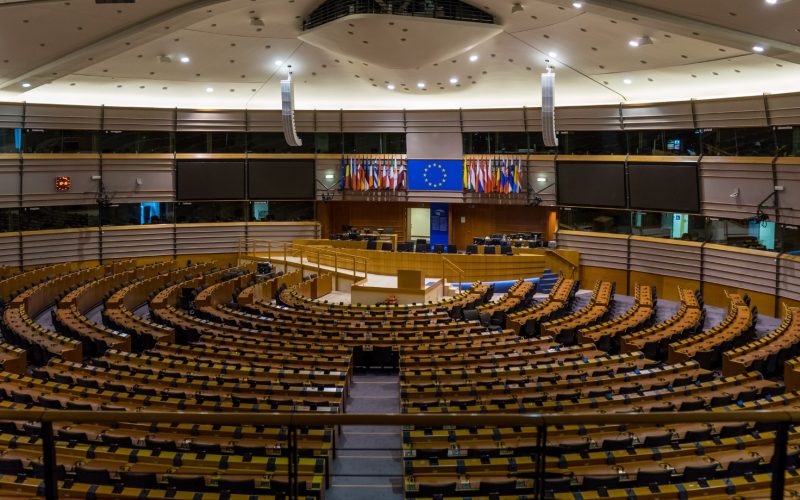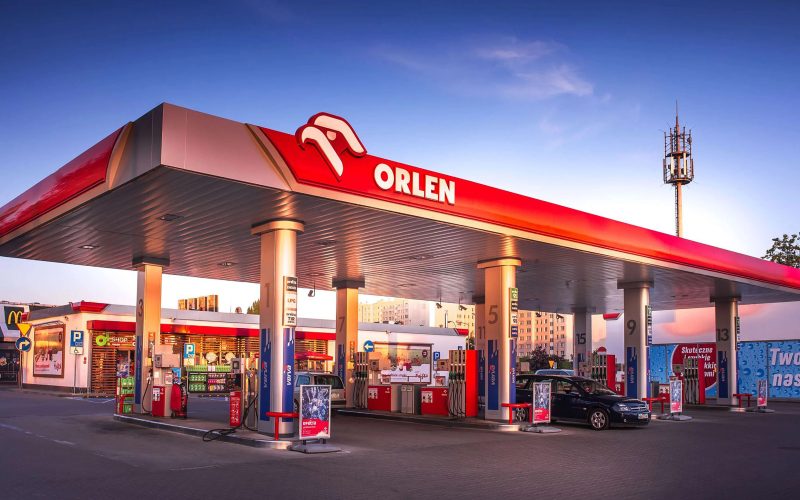Biomethane in Ukraine, exports to the EU and environmental protection: UABIO at the ENERGOTECH conference
“If you have waste, produce biomethane, but if you have raw materials that are not formally classified as waste, produce biogas for electricity generation,” says Georgii Geletukha.
On September 18, 2025, the ENERGOTECH conference was held in Kyiv with the participation of heads of agricultural companies, food and industrial enterprises. Georgii Geletukha, Chairman of the Board of UABIO, spoke at the third session, “Bioenergy Projects in Ukraine.” The expert described the state and prospects of biomethane production in Ukraine.
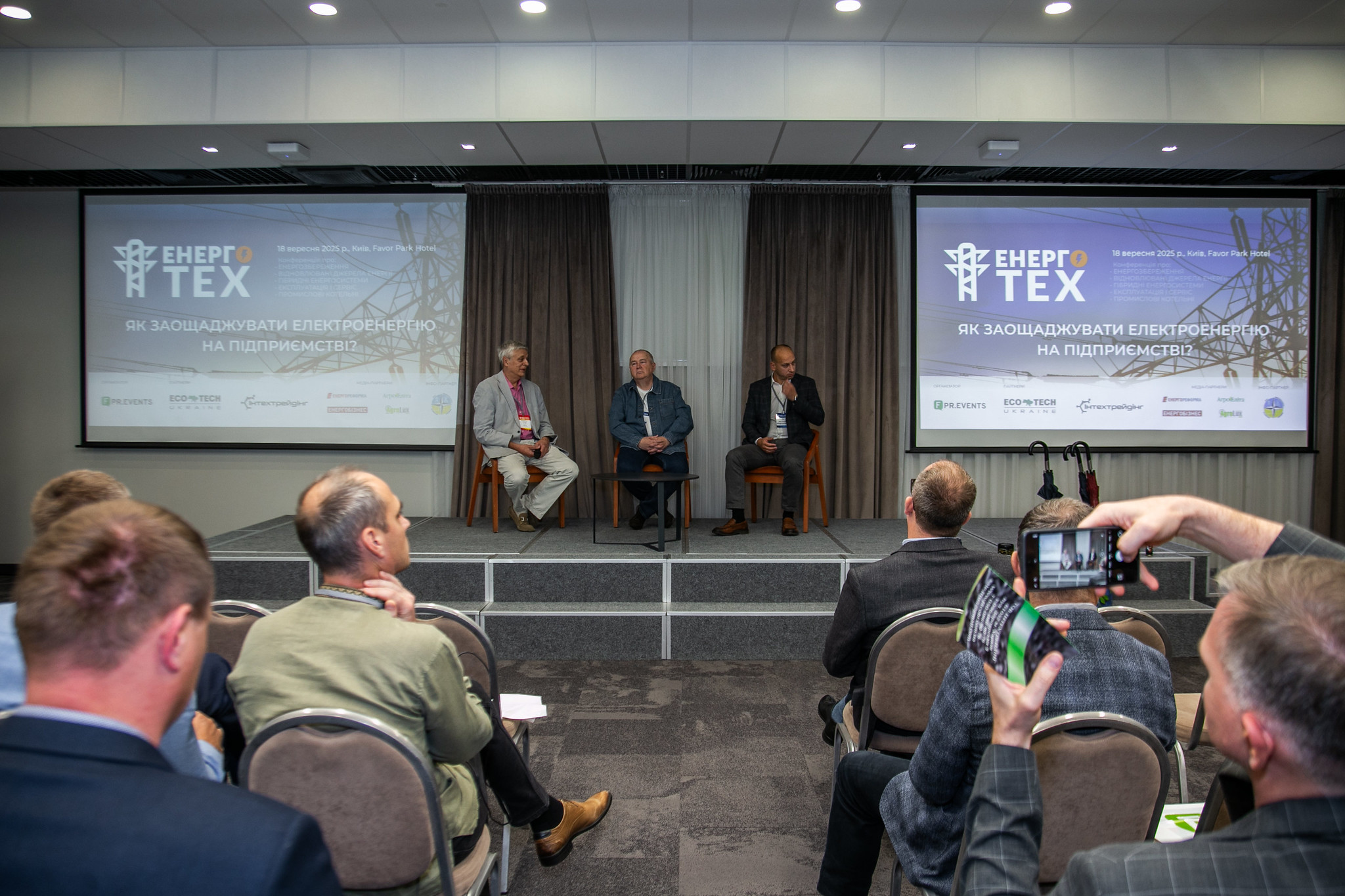
Oleh Riabov, head of renewable energy at Gals Agro, and Anatolii Martynenko, representative of MHP, also participated in the discussion following the presentation.
The full video recording of the event (in Ukrainian)
Biomethane in Ukraine: the main points of Georgii Geletukha’s speech
There are currently 83 biogas plants (140 MW) and four biomethane plants (41 million m3 per year) operating in Ukraine.
“Biomethane is absolutely ready to be injected into the gas network already now. Currently, it is the cheapest of all possible renewable gases. These plants also generate digestate, which can become the main organic fertilizer needed to revive Ukrainian soils. In addition, Ukraine has the largest area of agricultural land in Europe and, accordingly, one of the best potentials in the world for agricultural raw materials for biomethane production. Currently, the potential for biogas/biomethane production in Ukraine is 21.8 billion m3 per year,” said Georgii Geletukha.
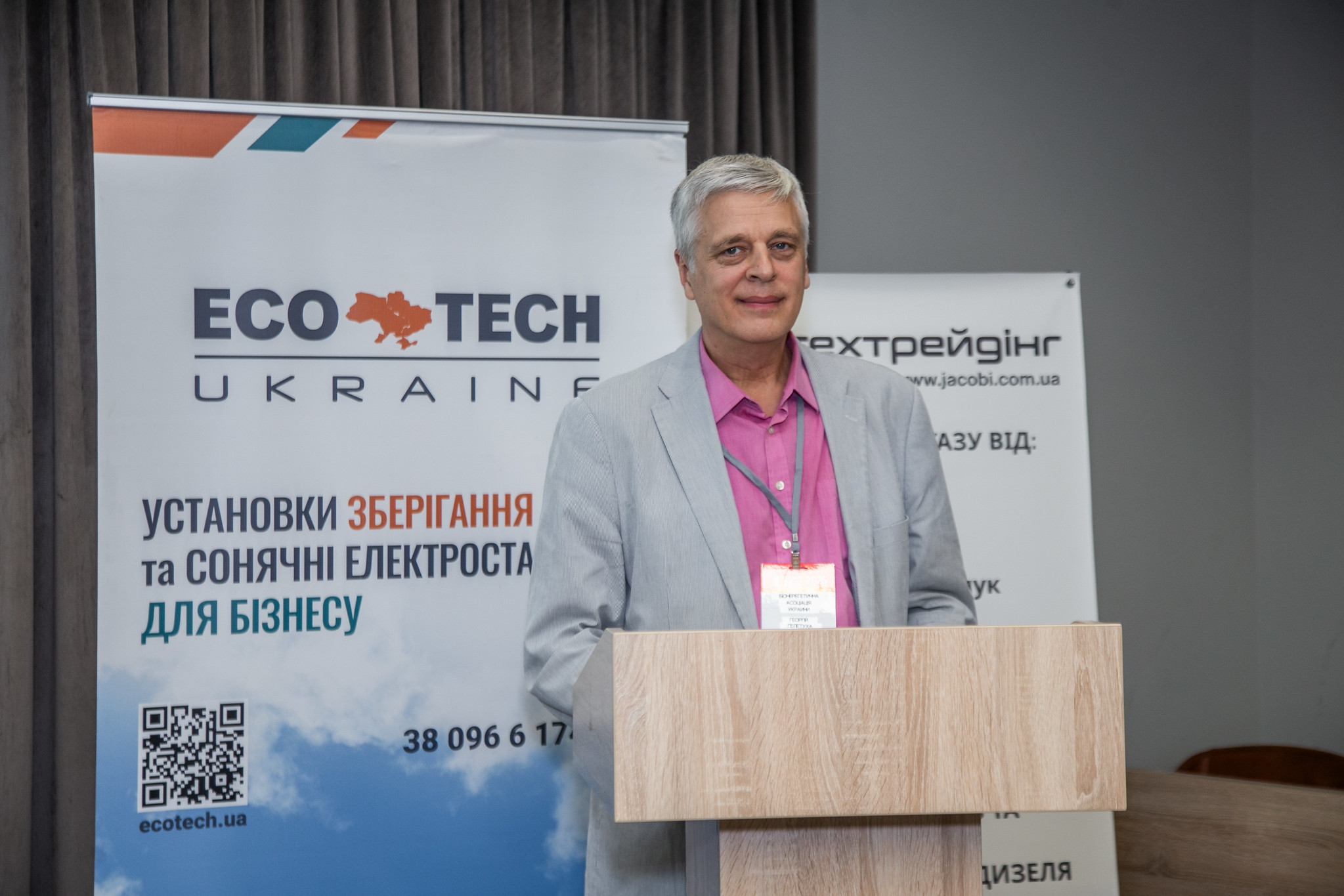
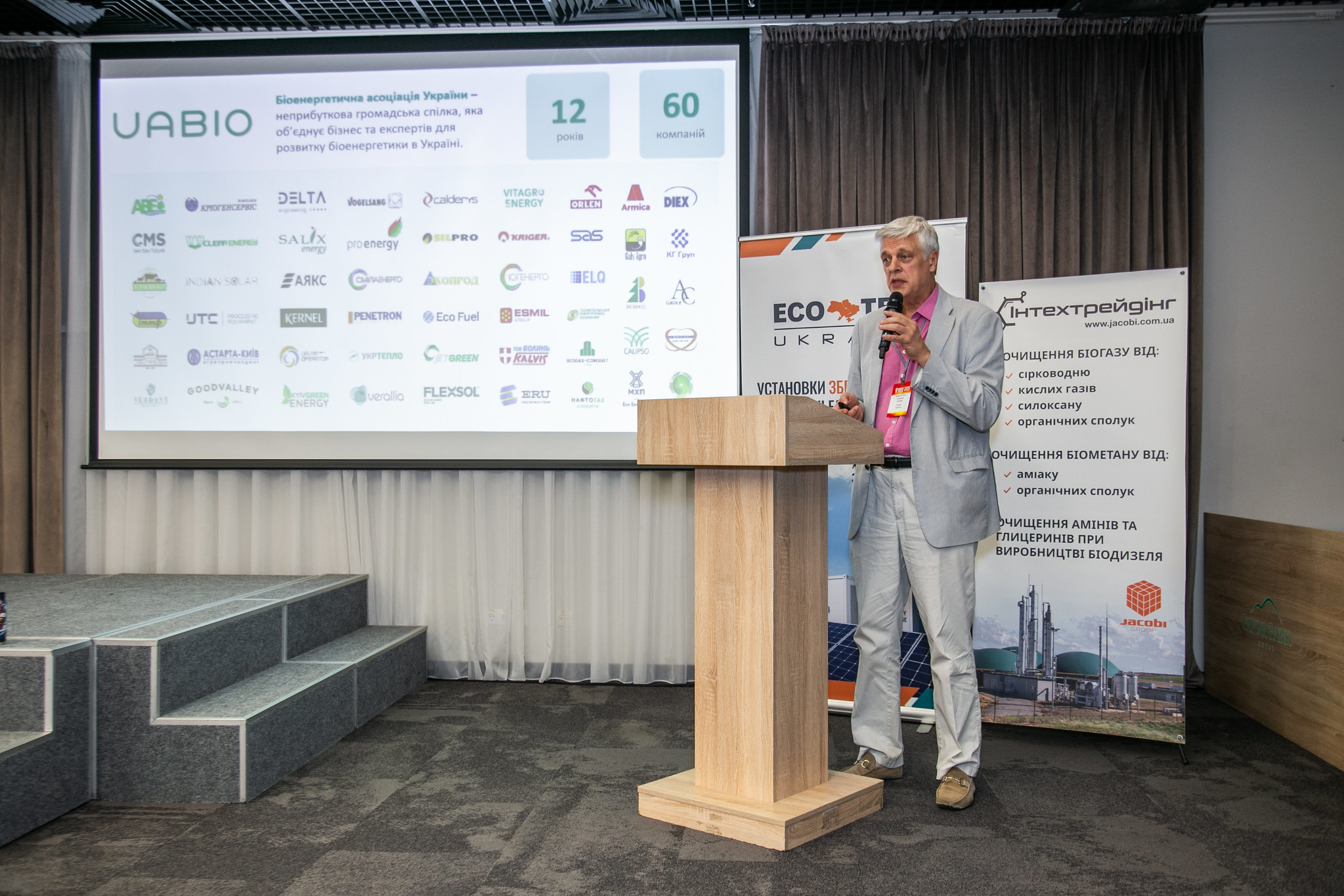
The most expensive biomethane is produced from manure, which significantly reduces CO2 emissions and meets RED II requirements. Other types of raw materials suitable for biogas production with double energy credit include:
- straw;
- corn cobs;
- grape pomace;
- wine lees;
- husks;
- category 1 and 2 animal fats;
- cover crops;
- algae grown in land-based ponds or photobioreactors;
- biomass fraction of industrial waste that cannot be used for food or feed production (including substances from retail and wholesale trade, agri-food and fisheries industries).
Download Georgii Geletukha’s presentation (in Ukrainian)
The “green” transition in the EU, profitability, and environmental protection — expert discussion
During the third session of the ENERGOTECH conference, Georgii Geletukha, Oleh Riabov, and Anatolii Martynenko discussed:
- What is the point of introducing biogas plants for medium-sized agricultural and food enterprises?
- What are the investments, payback period, and price per kWh?
- What is the current experience of biomethane production in Ukraine?
- What are the prospects for biomethane exports?
The speakers also discussed the prospects for green transition in Europe and the role of renewable energy sources in this process, heat production from solid biomass, environmental protection and waste recycling, the cost-effectiveness of biogas projects, and the advantages of certain types of raw materials for biogas production.
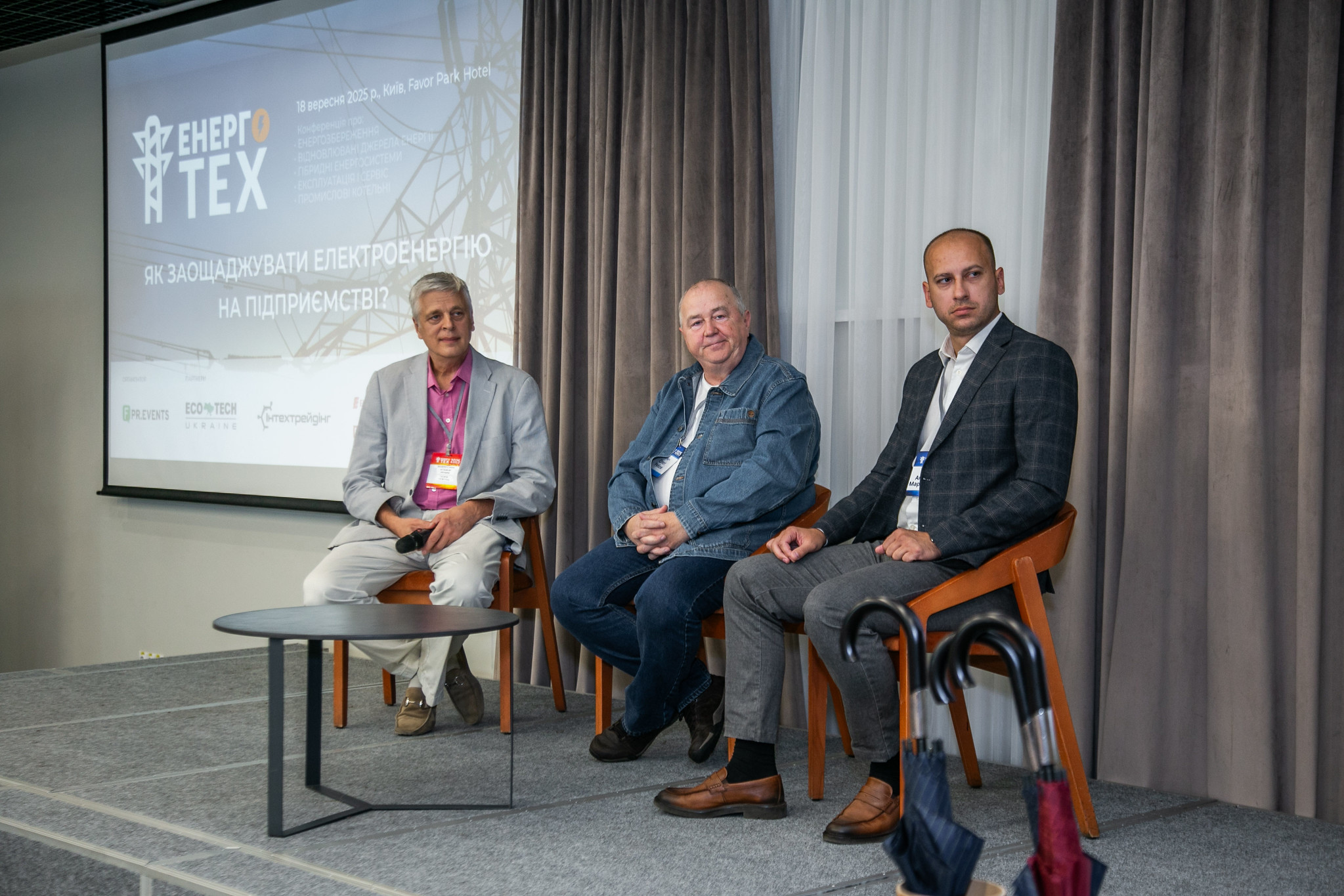
“There are several quite serious issues in the green transition — environmental protection, waste recycling, and reduction of greenhouse gas emissions. As for the biotechnology market (biomass, biogas, biomethane), it is a market for raw material owners. Given the limited distance for raw material delivery (about 20-25 kilometers), these are mainly small local producers,” said Oleh Riabov.
“Ukraine has great potential for biogas and biomethane production. We (MHP) have really good raw materials for biomethane production — chicken manure with the best CO2 savings. That is why biomethane from this raw material is most valued in Europe. Thus, biomethane can earn approximately twice as much as electricity or heat production from the same biogas at these prices. For MHP, biomethane is an economic component (improving profitability and return on investment) and energy independence for its own assets,” said Anatolii Martynenko.
Export of biomethane to the EU
At the end of the session, the Association’s Chairman of the Board, Georgii Geletukha, focused on the current situation with Ukrainian biomethane exports to the EU:
“On our part, we have resolved many of the key issues that were hindering the development of the biomethane sector, but now the problem is on the European side. Producers have delivered the first test batches, but a long-term contract has not yet been signed. Europe is not yet ready for Ukrainian biomethane; it is not even ready for trade biomethane within the EU. I hope these are all growing pains and that in six months or a year, the UDB will open and the European Commission will finally determine its position on Ukrainian biomethane”.
“However, my outlook is positive, as the EU’s targets are significantly higher than their current production rates — meaning there is a market shortage. Ukraine can capitalize on this and enter this ‘blue ocean’ with its biomethane”.

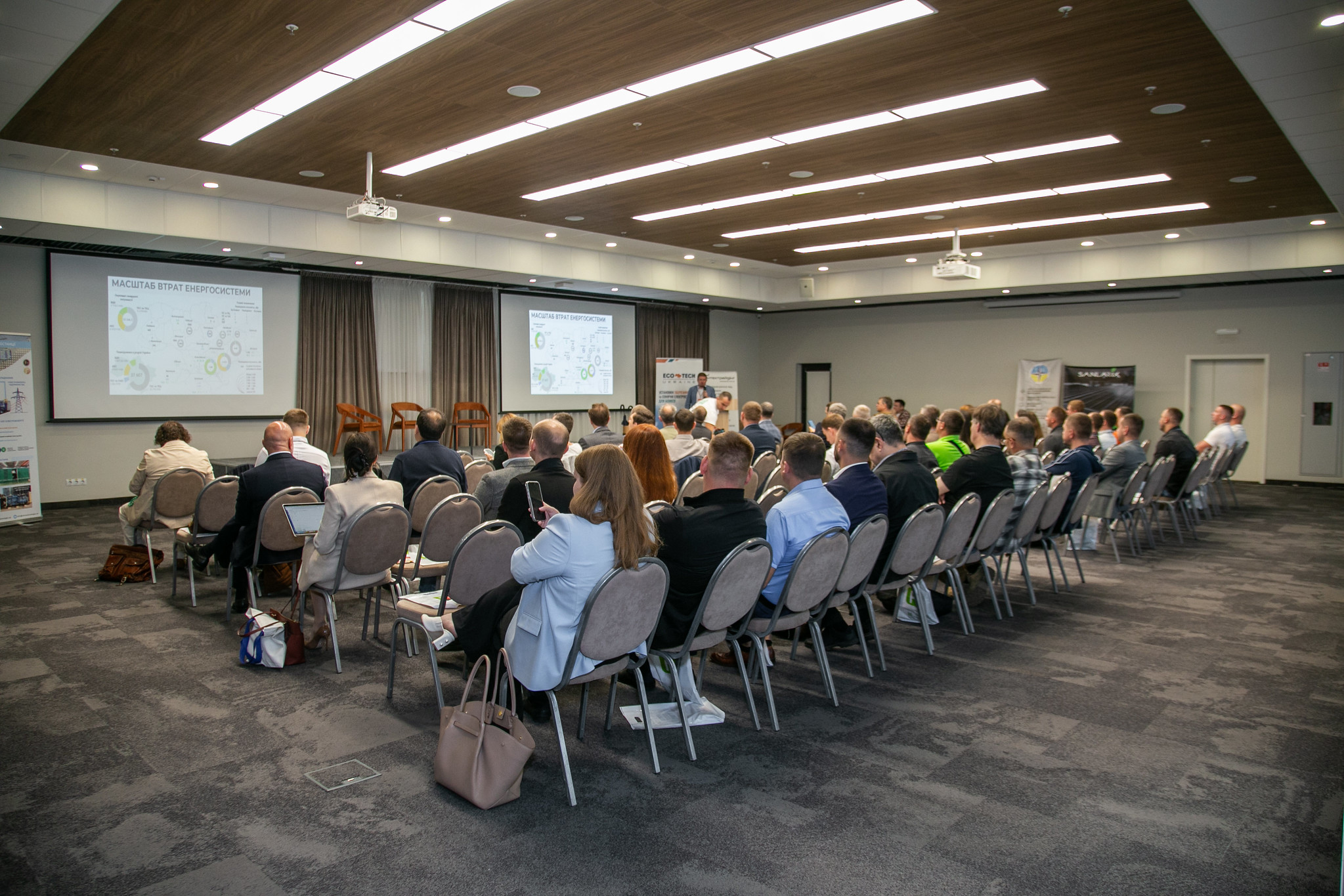
We would like to thank FPR.Events, the organizer of the ENERGOTECH conference, for providing photos of the event and for holding such a useful and interesting event.
